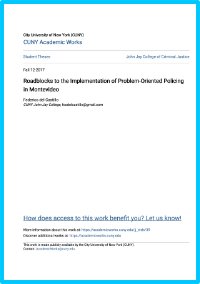By Md. Ohidujjaman and ARM Mehrab Ali
Problem-oriented policing is considered to be a very effective strategy to prevent crimes, which prefers proactive strategies over-reactive responses. Understanding the importance of problem-oriented policing, Dhaka District Police has already taken some initiatives for preventing offenses in the first place. The paper has given a look at those initiatives taken by Dhaka district police and wanted to explore whether those initiatives can decrease crimes and minimize the tendency of criminal behaviors. Our result shows that the number of case filed under Dhaka District Police has a decreasing pattern during 2011-15, especially cases concerning violence against women and children have reduced significantly. It is clear that the problem-oriented proactive policing worked as one of the catalysts to reduce the number of cases filed. This result is consistent with the evidence from similar other studies and existing theory, which predicts that problem-oriented proactive policing will reduce cases and have a positive impact on the community level. However, further research with extensive primary data collection is necessary to measure the impact of the proactive policing practice of the Dhaka District Police.
IOSR Journal Of Humanities And Social Science (IOSR-JHSS); Volume 22, Issue 9, Ver. 7 (September. 2017) PP 01-09











